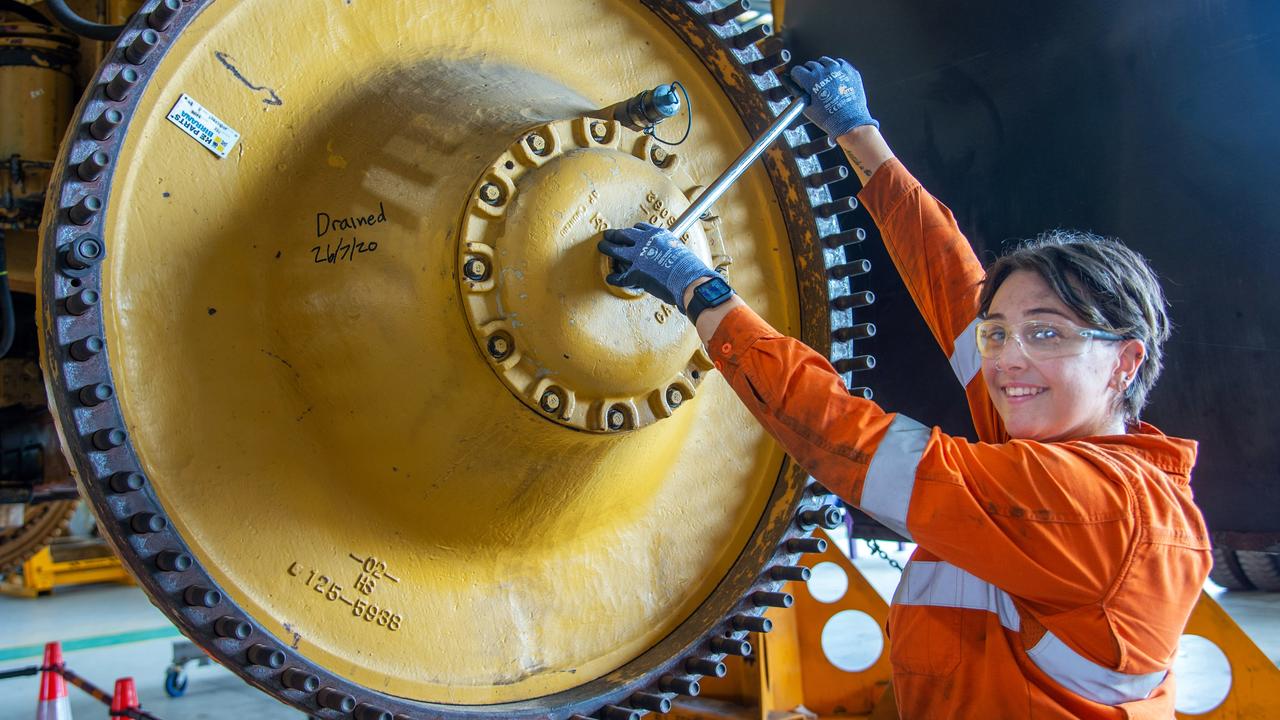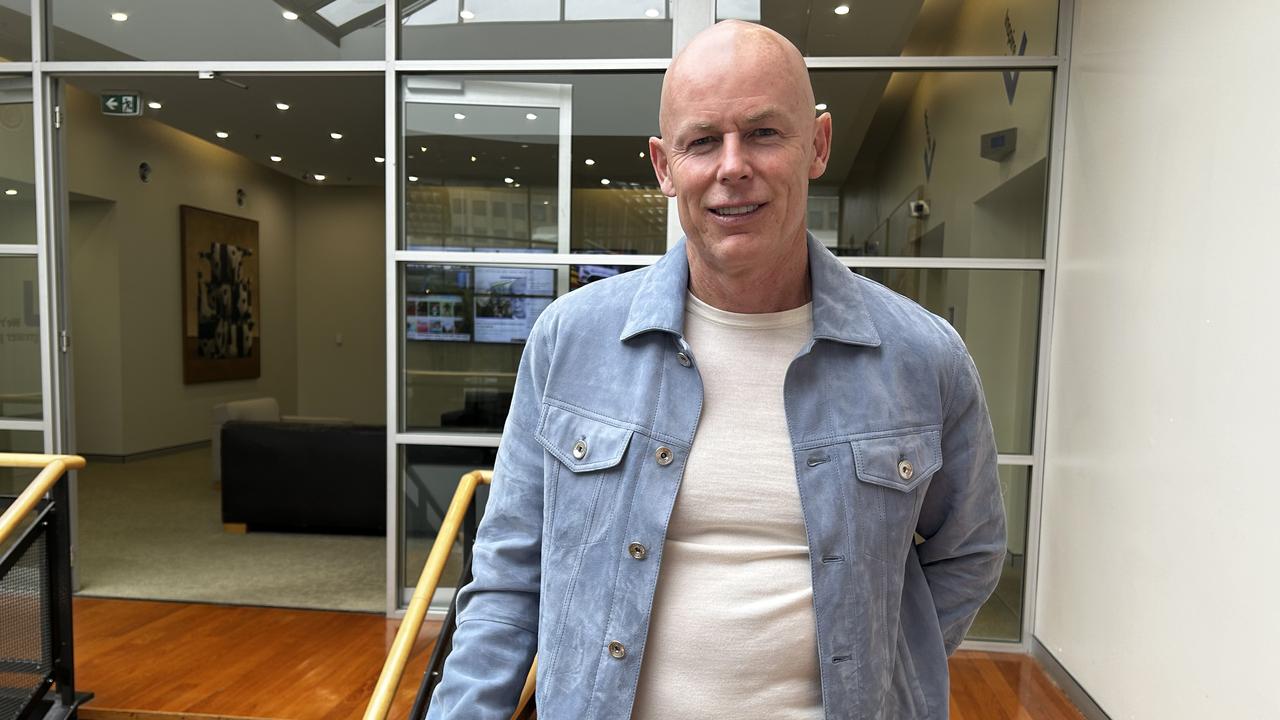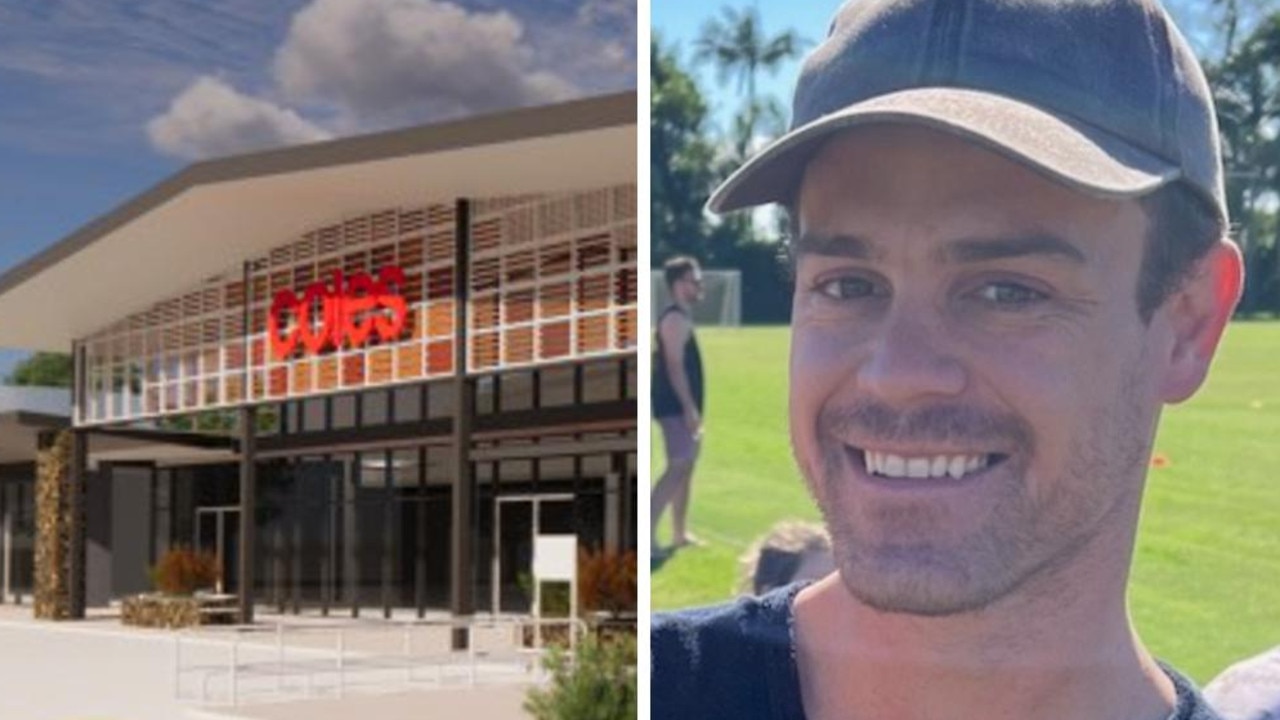Skills crisis: Mining giant Glencore’s struggle to fill 300 Queensland job vacancies
The skills shortage is the biggest threat to the future viability of Queensland’s resources sector with one company struggling over the past year to fill 300 vacancies.

Business
Don't miss out on the headlines from Business. Followed categories will be added to My News.
The biggest threat to the future viability of Queensland’s resources sector is an acute shortage of skilled workers to fill key jobs, industry leaders say.
Glencore chief operating officer Matt O’Neill said his company had been struggling to fill about 300 vacancies in North Queensland for the past 12 to 18 months.
He noted that the openings span the gamut of jobs, from the most skilled production operators to entry-level truck drivers, and the problem is particularly acute in regional areas.
It’s the most severe shortage he’s seen since first starting work in the industry in 2008.
Rising costs and supply chain problems have also blown out the time it takes to get replacement parts for equipment from a day or two to up to two weeks.
To cope, Glencore has reduced capacity at some of its sites but Mr O’Neill is hopeful that a combination of border openings and the end of JobKeeper payments will help ease the crunch.
Queensland Resources Council chief executive Ian Macfarlane told the group’s annual lunch in Brisbane recently that about 1500 positions remain vacant across the state.
That includes about 1100 jobs paying $100,000-plus a year, Macfarlane told the crowd of more than 850 industry players.
Mr Macfarlane blamed the dilemma on a potent mix of Covid-related border restrictions, a drop in skilled migration and interstate competition for workers.
Shane Goodwin, head of corporate affairs and social responsibility at New Century Resources, said the labour squeeze had made it more difficult to recruit new staff.
“We’re seeing fewer applicants for roles. People are reluctant to move on from jobs so there’s less churn,’’ he said.

Mr Goodwin predicted that the uncertainty holding workers back will only ease once vaccination rates exceed 90 per cent and border closures come to an end.
The mining sector directly employs about 56,000 people across the state but supports another 423,000 in related industries, according to QRC research.
It contributed a record $84.3bn to the Queensland economy in 2021, up $2bn over the previous year.
North Lakes-based Xplore Resources chief executive Kim Wainwright, whose company supplies contract staff to mining sites around Australia, says it has been a challenging year.
“It’s been tricky to get people around Australia because of the border closures,” she said.
But Ms Wainwright, the chair of the Queensland Exploration Council, is hopeful the outlook will improve in 2022.
She said geologists and engineers have been among the most in demand skilled workers.
The closure of international borders has had a big impact on skilled migrants who have been unable to come into the country and take up these roles, she said. The ageing workforce and lack of graduates coming into those specialist fields has also compounded the problem.
“All combined this has caused a shortage of skilled workers in those professions and it is coming at a time when the resources industry is increasing its output,” she said. “It’s the perfect storm for a skills shortage.”
In the short term, getting staff would be a struggle.
Gold mine geologists who attracted pay of $120,000 back in 2014/15, were now getting hired for $150,000 to $170,000 on average.
“In the last 12 months staff have been offered more,” Ms Wainwright said. “ Retention rates are down and staff are being poached.”
She said graduate geologists are coming out of university and getting a six-figure remuneration package.
Her company recently advertised for a mine geologist and received 10 applications, with only three of four having the right skills for the job.

A similar position six years ago would have drawn more than 1000 applicants.
BHP Mitsubishi Alliance asset president Mauro Neves said the coal joint venture had seen constraints in labour availability and supply chains across its Queensland operations.
“We expect competition for skills to continue and likely increase through 2022,” he said.
“It’s critical that business, government and communities tackle this challenge together to put Queensland in the best position to bounce back from Covid-19 stronger, more resilient and well placed to grasp new opportunities,” he said.
Mr Neves said investments in skills and regional communities, like the BHP FutureFit Academy would help drive the Queensland economy forward.
The Mackay-based academy will produce roughly 1750 job-ready apprentices and trainees over the next five years.
“We’re also driving innovation in new approaches to training through the Queensland Future Skills Partnership,” he said referring to BMA’s collaboration with TAFE Qld and CQUniversity to identify the resource sector’s future skills needs.
Hastings Deering general manager of people and culture Peter Rigbye said the heavy equipment giant was seeing an increased demand for skilled labour, particularly diesel fitters, in key Queensland markets of Rockhampton, Mackay, and Brisbane.
Encouragingly, he said the company would recruit another 50 apprentices in February.
“Each year we see a real thirst for apprenticeships with application numbers climbing to record numbers every year – this year more than 10,000 people looked at our apprenticeship site for our 2022 intake,” he said.
“Almost every one of our apprentices is offered a position upon graduation.”
More Coverage
Originally published as Skills crisis: Mining giant Glencore’s struggle to fill 300 Queensland job vacancies








